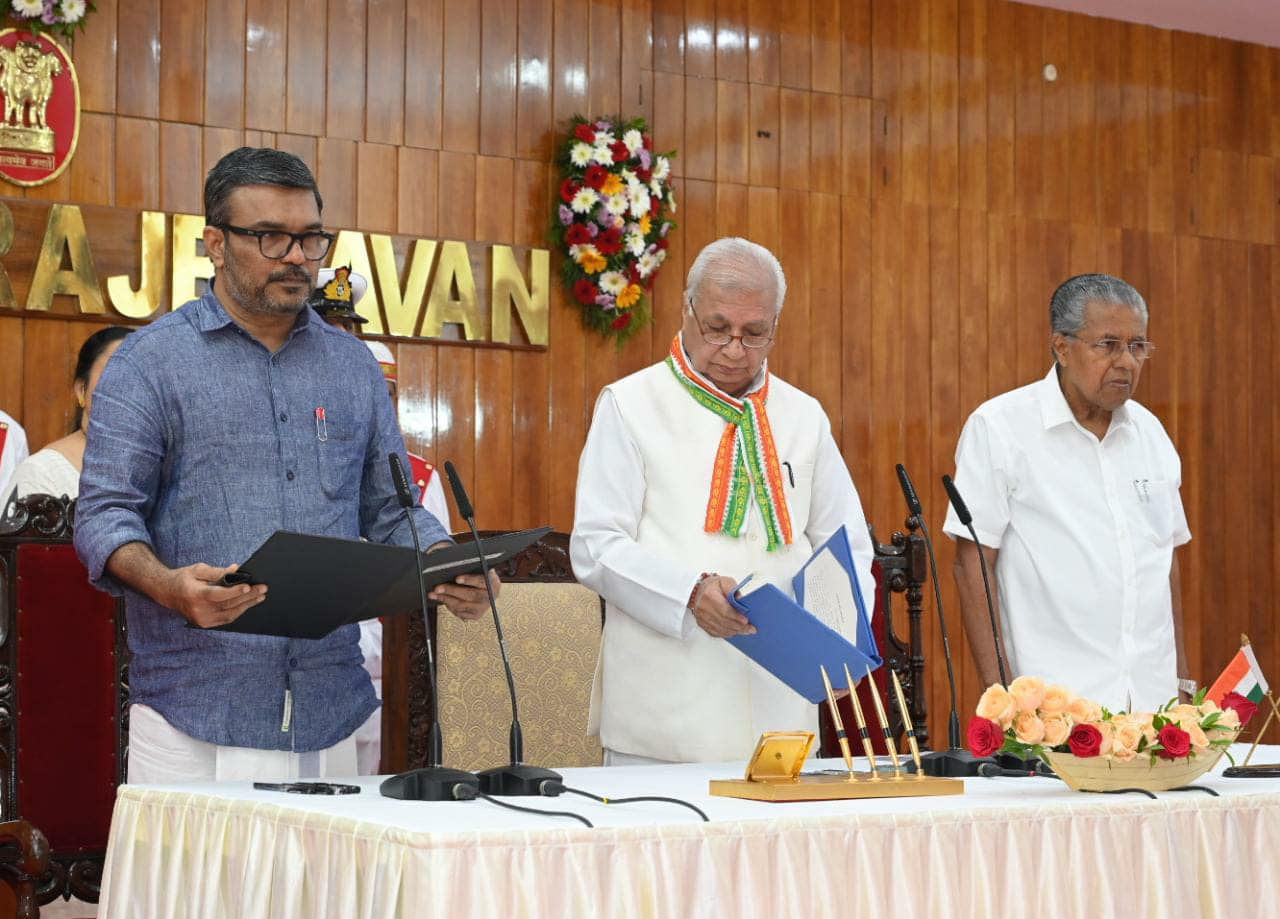While the issues are important, the response to them is a commentary on the current state of compromised intellectual independence in a state that claims to be highly progressive and politically enlightened.

File photo of Governor Arif Mohammed Khan with Chief Minister Pinarayi Vijayan at the Kerala Raj Bhavan (Supplied)
Unusual things have been happening in Kerala for a few months. Standalone incidents appear to mutate into interrelated events and patterns. The appointment of vice-chancellors in Kerala universities has all of a sudden become legally untenable.
It all started with the Supreme Court setting aside the appointment of the vice-chancellor of the APJ Abdul Kalam Technological University on grounds of procedural flaws.
The court found the action of the Chancellor (Governor) appointing the sole name given to the Raj Bhavan as not in conformity with UGC stipulations. The Chancellor ought to have selected the vice-chancellor from a panel of three names recommended by the duly-constituted search committee.
The Supreme Court, however, did not cast any aspersion on the qualification and suitability of the person appointed. While she was eminently suited and qualified for the job, the court held that the procedure of appointment was flawed.
Soon after the apex court pronounced the order and the vice-chancellor of the APJ Abdul Kalam Technological University relinquished the post, the Kerala Governor directed other vice-chancellors whose appointments were also defective on the same ground to resign. Predictably, the matter reached the High Court and the petitioners (vice-chancellors) got relief by a few more days.
Of course, the atmosphere is not as placid as it sounds. Both sides — the Governor and the government — were vocal in the media with charges and counter-charges. The Governor, defying characteristic circumspection naturally associated with his office, accused the state government of unduly interfering in the affairs of the universities. The government was of the view that the Governor was exceeding his authority.
Politically, the Governor’s belligerence was seen as part of the BJP agenda. In response to the Kerala Governor’s action against the vice-chancellors, the government promptly promulgated an ordinance removing the former from the position of Chancellor in universities in Kerala. The ordinance, yet to be signed by the Governor, seeks to appoint eminent scholars as Chancellors.
Unconnected with these new developments, the appointment of an applicant, Priya Varghese, as an associate professor in Kannur University was already under challenge in the High Court.
That the first-ranked candidate happens to be the wife of the private secretary of the Kerala chief minister made the issue newsworthy. Eventually, after simmering for a few weeks, the matter was settled by the court. The University was directed to initiate the selection process afresh.
There is a prequel to the current unedifying relationship between the Chancellor and the vice-chancellor of Kannur University. That came to the fore when the incumbent VC, Prof Gopinath Ravindran, was given a second term. The Governor reportedly relented, though unconvinced.
The Governor has a grouse against the Kannur VC on account of an incident that happened a year ago.
While the Governor was making his inaugural address at the History Congress hosted by Kannur University, the noted historian Prof Irfan Habib interrupted the Governor and apparently approached him voicing dissent. The Governor contends that it was not only an act of indiscretion but an act of aggression. The vice-chancellor’s response to the incident had been repeatedly denounced by the Kerala Governor as irresponsible and partisan.

It is suspected that Thiruvananthapuram Mayor Arya Rajendran’s alleged letter was leaked due to intra-party rivalry (Twitter/Arya Rajendran)
Another totally unconnected incident that is still creating headlines is a letter allegedly written by the young mayor of Thiruvananthapuram, Arya Rajendran.
The opposition parties allege that the letter, which sought a list of party loyalists for temporary appointments in the city corporation, amounts to nepotism and corruption.
Both BJP and Congress councillors have been on the warpath demanding her resignation.
However, the mayor has denied having written such a letter and requested the chief minister to order a police enquiry into the matter. The impasse continues.
Several issues arise from these incidents.
Foremost among them is the question whether the proposed ordinance replacing the Governor as Chancellor will benefit university education in the state. Equally pertinent is the enquiry whether there have been unfair practices in appointments to the universities and local bodies.
Though the Governor of Kerala, Arif Mohammed Khan, has been vocal about the alleged impropriety in the appointment of vice-chancellors, the fact remains that they have all been duly appointed by orders issued by him. Isn’t the Governor too guilty of not complying with the laid-down procedures then?
While these issues per se are important, a more cardinal point needs to be flagged. That point is a commentary on the current state of compromised intellectual independence in a state that claims to be highly progressive and politically enlightened.
None of these issues implicit in the recent turmoil in the state has elicited any worthwhile response from the intellectuals and academics.
Both the print and electronic media have dealt with these developments as nothing more than daily news items with no effort to go deeper into the real fault lines. The academics, all barricaded on political lines, are either silent or vocal along predictable lines. The heart of Kerala seems to be frozen.
The moral dimensions of administrative and political decisions are no longer assayed by civil society or the intelligentsia. Where predictability is the rule of the game, intellectual curiosity and critical thinking become natural casualties. It seems a long intellectual winter has set in Kerala.
(K Jayakumar is former Kerala chief secretary and ex-VC, Thunchath Ezhuthachan Malayalam University. These are the personal views of the author)

Jul 26, 2024

Jul 26, 2024

Jul 25, 2024

Jul 25, 2024

Jul 25, 2024

Jul 24, 2024